Subscribe: Apple Podcasts | Google Podcasts | Spotify | Stitcher | Blubrry | Email | TuneIn | RSS | More
This episode of the Crime Cafe podcast features my interview with crime writer David Kushner.
Check out our discussion his nine-part series on Substack about a murder at the Texas Renaissance Fair and other writing.
This is the Crime Cafe, your podcasting source of great crime, suspense and thriller writing. I’m your host Debbi Mack. Before I bring on my guest, I’ll just remind you that the Crime Cafe has two eBooks for sale: the nine book box set and the short story anthology. You can find the buy inks for both on my website, debbimack.com under the Crime Cafe link. You can also get a free copy of either book if you become a Patreon supporter. You’ll get that and much more if you support the podcast on Patreon, along with our eternal gratitude for doing so.
Check us out on Patreon: https://www.patreon.com/crimecafe
Debbi (00:54): But first, let me put in a good word for Blubrry podcasting.
I’m a Blubrry affiliate, but that’s not the only reason I’m telling you this. I’ve been using Blubrry Podcasting as my hosting service for my podcast for years and it’s one of the best decisions I ever made. They give great customer service, you’re in complete control of your own podcast, you can run it from your own website, and it just takes a lot of the work out of podcasting for me. I find for that reason that it’s a company that I can get behind 100% and say, “You should try this.” Try Blubrry. It doesn’t require a long-term contract, and it’s just a great company, period. It also has free technical support by email, video, and phone, so you can get a human being there. Isn’t that nice?
If you want to podcast, try out Blubrry. No long-term contract, excellent distribution, and great technical support, too, by email, video, and on the phone. I’ve included an affiliate link on this blog.
Here’s a link to a PDF copy of the interview.
Debbi: Hi, everyone. Today, it’s my pleasure to have with me an award-winning journalist and author. And along with writing true crime and non-fiction graphic novels, he’s written for a variety of major periodicals. Today, we’ll focus on his writing for a newsletter he has on Substack called Disruptor. My guest today is David Kushner. Hi, David. Thanks for being with us today.
David: Hi, thanks for having me.
Debbi: Well, no problem. It’s a pleasure for me. I was reading over what you wrote on Substack about the festival. The Texas Renaissance Festival. What prompted your interest in the crime that took place at this festival?
David: Well, I had gone to the Texas Renaissance Festival. Actually, it was about 17 years ago to do a story on it for FHM magazine, which was a men’s magazine at the time and I was interested in it for a couple reasons. One was because it’s the world’s largest renaissance festival. It’s in kind of the middle of a small town, that’s a town of about 100 people outside of Houston. So, it’s kind of in the middle of nowhere. And this guy George Coulam who came there in the 70s and incorporated the town. Became mayor and then essentially transformed the town into a working recreation of a Renaissance Village, all that was super fascinating to me. And I went there and I was there for a few days reporting the story.
Then at one point, when I was leaving the festival one night, a scuffle broke out very close to me and a lot of shouting and a crowd formed. And I got out of there, you know don’t want to be in a situation like that. But what I later found out was that actually somebody had gotten killed in that fight. Somebody was stabbed multiple times and it was a terrible, obviously, terrible tragedy. It’s something that I always thought about having just kind of brushed up so close to it. And then as things went, this magazine went out of business. I never wrote this story, but I thought about it for 17 years. And then I finally decided, you know, I have this newsletter and I thought there’s a different way maybe I can approach telling it and telling it in kind of a bit of a more multimedia way I guess you might say. And so, that’s how it all came about.
I had gone to the Texas Renaissance Festival. Actually, it was about 17 years ago to do a story on it for FHM magazine, which was a men’s magazine at the time and I was interested in it for a couple reasons. One was because it’s the world’s largest renaissance festival. It’s in kind of the middle of a small town, that’s a town of about 100 people outside of Houston.
Debbi: Yeah, it was very multimedia. You had the clip in there with I think it was Leeza Gibbons.
David: Yeah.
Debbi: Thought that was very interesting. There are a couple of things that struck me about your story. First of all, the way this guy bought up this land.
David: Yeah.
Debbi: Essentially starting this town that he owns pretty much and is mayor of.
David: Right.
Debbi: And it’s almost like a unique niche company town or something.
David: Yeah, it’s true. I mean it’s interesting that he went in there and incorporated the town and like I said became mayor. And then what, he needed people to work. His idea, he really came out of the Renaissance Festivals, came out of the kind of, I guess you would say hippie culture of like 60s, 70s. He was a part of that and he took it really seriously. He was an artist. He worked on stained glass and all of that. And there’s kind of a nomadic community around these Renaissance Festivals and they traveled from festival to festival. They also look for somewhere to stay during the off season.
I mean it’s interesting that he went in there and incorporated the town and like I said became mayor. And then what, he needed people to work. His idea, he really came out of the Renaissance Festivals, came out of the kind of, I guess you would say hippie culture of like 60s, 70s. He was a part of that and he took it really seriously.
So, he had all of these ideas that he could kind of create a place that would be a really impressive festival but also be a place where people could come—Rennie’s as they’re called—could come in the off season. So, and to do this, he needed help. So, he started recruiting the locals who were skeptical certainly at first and they were coming from two different worlds completely. And but he taught them middle English. He taught them how to dress. He taught them how to kind of behave. And they embraced it, because it was a source of income for them and it became a passion for a lot of people in that area.
Debbi: Yeah. Very very interesting. The other thing that struck me about it was the shocking level of violence between people who barely knew each other. And these days that there are shocking, shockingly violent events that that take place.
David: Yeah.
Debbi: Way too often. But when I think about this level of violence in this particular crowd that certainly must have had an effect of some sort.
David: Yeah.
Debbi: Can you talk about that in general in terms of the effect as well as, is this indicative of anything in particular?
David: I mean it may be indicative of what happens when people, you know I don’t know. I think that tragedies can happen anytime, anyplace. This is a place where people are spending the day and night drinking a lot, partying a lot. The idea’s that you’re living in this somewhat hedonistic fantasy of what it was like during that time, people are jousting men or men, women or women, that kind of an attitude. So, in a way it’s very retrograde actually, but and most people go there and have a great time and it’s just fun and it’s like a theme park. So, I mean if I could break out outside Disney World. But in this case, I think you had an individual who clearly had been drinking and been doing drugs. And then another individual who was in the wrong place, the wrong time, really had tried to help out this other person in ways that I describe an article and then, that quickly went south.
But in this case, I think you had an individual who clearly had been drinking and been doing drugs. And then another individual who was in the wrong place, the wrong time, really had tried to help out this other person in ways that I describe an article and then, that quickly went south.
Debbi: That’s for sure. It’s amazing, isn’t it? What made you interested in writing your books?
David: My books?
Debbi: Yes.
David: I guess I had just been in college. I started writing for the school newspaper and I enjoyed that. That was a way that I could get free CDs and concert tickets at the time. So, I was very opportunistic. And then I really enjoyed it. I grew, around that time I had been reading a lot of what were called the new journalists, people who are writing, magazines like Rolling Stone. So, Hunter Thompson and Tom Wolfe and Joan Didion and people like that and so I just really became attracted to that kind of writing. It was what we call now like narrative nonfiction. So, true stories that read like fiction that are really deeply reported and where the reporting is immersive and you’re really trying to get to know people again. Find out what makes them tick and bring them to life.
I grew, around that time I had been reading a lot of what were called the new journalists, people who are writing, magazines like Rolling Stone. So, Hunter Thompson and Tom Wolfe and Joan Didion and people like that and so I just really became attracted to that kind of writing.
So, that was my interest and then I started in the pretty much in the early 90’s kind of writing about the nascent internet. Which was starting to happen in gaming and hackers. And I felt like that was a relatively undocumented culture and industry. So, I kind of raised my hand and said, hey, I’d like to write about this stuff. And eventually people gave me a break and that led to a series of books.
Debbi: Well, I have to say that you write on a variety of topics. Impressive variety. Music, travel, business, true crime. Have I missed anything? Pop culture.
David: I mean for me it’s really, one thing I learned and it’s I do teach journalism occasionally. And I think that when a lot of people are starting out, I did this myself I mean I’ll never forget I pitched one of the first stories I pitched Rolling Stone was I think I just wrote a letter saying like, hey, why don’t I write about monster trucks. And which is probably the worst pitch you could ever give, whether or not you’re interested in monster trucks. But what took me a long time to learn was that it’s you can’t just pitch a topic. It’s not about something being cool. It’s really like what’s the story? What’s the drama? What’s the conflict? Who are the characters?
But what took me a long time to learn was that it’s you can’t just pitch a topic. It’s not about something being cool. It’s really like what’s the story? What’s the drama? What’s the conflict? Who are the characters?
So, for me that’s really what it’s about. It’s a little bit about the worlds, too. I mean I was interested in the world of these renaissance festivals just having gone to them as a kid. But it’s not enough to just want to write about a festival. Originally, for me it was a profile of this guy and the conflict was how does this guy come to the middle of a kind of cowboy town in the middle of nowhere and turn it into the world’s largest Renaissance Festival. That to me was interesting. So, in the conflict between him and the community and then that ended up becoming a crime story. So, that’s kind of how I approach it. I mean I’m interested in a world but really comes down to the characters in the story and like what happened.
Debbi: Isn’t that really what it’s always all about?
David: Yeah. I mean, I think.
Debbi: Whether it’s fiction or non-fiction.
David: Yeah, I think so and I think that like, people we’re, we’re storytellers like that’s how we organize our lives and information. I think another good way to think about it is just like how would you, when something happens and you tell a friend or a family member. Or like, oh gosh, you wouldn’t believe what happened. If you listen to how you tell that story, what are the stories that you tell? How do you tell them? That’s kind of a bit of my thought process too about how I approach something. So, in this case, it would be like this guy, who the world’s largest Renaissance Festival is actually in the middle of this kind of small cowboy town and they’ve had all these crimes and things like that. So, I don’t know. It’s just setting it up for the conflict. I think it’s the approach.
I think that like, people we’re, we’re storytellers like that’s how we organize our lives and information. I think another good way to think about it is just like how would you, when something happens and you tell a friend or a family member.
Debbi: Yeah. What prompted you to start writing for Substack?
David: A few things, I mean, one is that I, there are a lot of stories that I want to tell. I mean, I’m never really at a loss for them but it takes a while with magazines and all of that. The production process is lengthier and so on. So, I want to have an outlet where I could just kind of do my own thing, when I felt like it and tell my own stories in ways that I want to do it. Like the Renaissance Texas is, it’s a 9-part story filled with all kinds of different things. So, that that’s really was my interest was just to have an outlet for where I could be a bit more flexible, and kind of creative and how I approach this.
Debbi: And what kind of reception has it gotten from readers?
David: Yeah, I mean it’s nice to have a kind of a direct way of reaching people. It feels more kind of intimate in a way. Almost feels like a class. Like I’ve taught classes and although this isn’t, you know it’s not a class but there a sense of like okay, we’re all together here. Here’s the story I’m going to be parsing out. I’m doing, I have this other long form project on there, called Masters of Disruption: How the Gamer Generation Built the Future. Which builds on ideas from my first book Masters of Doom, which was about actually some guys in Texas who made the games Doom and Quake. Which are among the most popular franchises in that industry.
So, that’s a project where once a week I’m kind of telling the story that played out in the time that I wrote the book, after that sorry I wrote the book. So yeah, it’s just a different kind of conversation that I can have with readers.
Debbi: Do you make use of the messaging function? Do you tend to do a lot of interacting?
David: I don’t at all. Probably considered, I don’t know bad form or not wise. But the thing is it’s like I have been doing this for a long time. And if I’m going to do something like I really want to do it and engage. And for me, I certainly understand the value of community online and I have written so much about it but I’m the kind of guy at the party who stands in the corner and then kind of leaves. So, that’s been my approach to social media, whether it’s better or worse. And so for me, I’m just focusing on telling the stories and people email me, it’s always great to hear from people. But that’s kind of how I’ve managed it.
Debbi: Boy, do I hear you when you say that, the one who stands in the corner.
David: Yes, correct.
Debbi: Let’s see. Have you thought about turning the series into an eBook?
David: No, I mean, for me, this is a forum onto itself. This is its own thing and it’s a way that I’ve kind of created three buckets on there. One is this long-form project Masters of Disruption. The other one are original feature stories that I’m creating just for the newsletter, such as the Texas story. I did another one recently about called Lunch Ladies, which was about a heist that took place at a high school in Connecticut by some of the lunch ladies and the food director who stole hundreds of thousands of dollars from the school. And then I have another section, the reporter’s notebook where I’m looking back at some stories from my archive and sharing them and kind of reconsidering them, telling some of the behind the scenes.
This is its own thing and it’s a way that I’ve kind of created three buckets on there. One is this long-form project Masters of Disruption. The other one are original feature stories that I’m creating just for the newsletter, such as the Texas story. … And then I have another section, the reporter’s notebook where I’m looking back at some stories from my archive and sharing them and kind of reconsidering them, telling some of the behind the scenes.
Debbi: Cool. Very cool. What writers inspire you most and what do you like to read?
David: Well, the good and bad thing about my job is that I’m reading all the time for whatever I’m writing. So, if like right now I’m working on a story that deals with remote working, for example. I’m reading a lot about that. It’s very kind of academic in a way. But then I’ll also read books that are related to what I’m working on. Unfortunately, I don’t get a ton of time. I don’t make a ton of time to read for pleasure because I’m just always reading for work. But work is pleasurable, so it all sort of fits together. The things that I write about interest me, so that my reading is connected to my writing. But yeah, and that’s kind of what my reading life is like.
Debbi: Well, I can understand that completely.
David: Yeah.
Debbi: What advice would you give to someone who would like to have a career as a writer?
David: The advice that I give to someone who wants a career as a writer is to write. I mean I don’t honestly, like that really, it’s the simplest advice and it sounds maybe glib. But that’s really it, you just have to do it. Like that’s the difference. I mean I think a lot of people start and they don’t finish because they don’t write. You have to write a lot and you have to deal with an enormous amount of rejection. The rejection is something that will never end, no matter who you are. So, I think writing and persevering are the most important things.
The advice that I give to someone who wants a career as a writer is to write. I mean I don’t honestly, like that really, it’s the simplest advice and it sounds maybe glib. But that’s really it, you just have to do it.
And the other thing that I tell people who are journalists and who are starting out, it’s kind of like the write about you know thing. But more specifically, if you’re out there and you’re wanting to make a career as a journalist, there are a lot of people out there writing. What do you know about that people don’t know about? Maybe it’s your local community something that happened there. Look in your own backyard. Tell the stories that you have an expertise in. so, I think thinking locally and looking in your own community is a good way to get started too.
Debbi: I’m glad to hear you say that because I was going to ask you about your thoughts about the future of local journalism.
David: Oh yeah, it’s depressing what’s happening to local newspapers for sure. So, I think on one hand, the industry is obviously in a lot of turmoil and transformation in flux. But that said, there’s also opportunity. So, I know that Substack has been working on some local journalism programs. Things of that nature. So, while the old traditional outlets are changing and shrinking. You have new ones forming. The real issue and the real loss that it that I don’t know that people think about exactly, but it’s the structure that’s the infrastructure of a local newspaper. You’ve got editors. You’ve got fact checking. You’ve got copy editing. Like there are a lot of hands and eyes and minds that are going into every story which is going to give you a different level of quality of the content.
Oh yeah, it’s depressing what’s happening to local newspapers for sure. So, I think on one hand, the industry is obviously in a lot of turmoil and transformation in flux. But that said, there’s also opportunity.
So, if it’s the internet and it’s just one person telling you what they think, there’s nothing wrong with that. But it’s not necessarily being held to as rigorous as standard for news. So, this gets into a much deeper question, problem about analytical thinking, critical thinking, and how we consume media which is a struggle.
Debbi: Yeah. Boy. You said a mouthful right there. Is there anything else you’d like to say before we finish up?
David: I don’t know. I don’t, thanks for having me. It was great to talk about all of this stuff. And yeah, I mean, I would encourage people to just check out my newsletter which is DavidKushner.substack.com and usually, I’m posting there a couple times a week.
Debbi: Alright. Well, thank you so much again.
David: Sure.
Debbi: And in closing, I’d like to remind everyone that you can buy the Crime Cafe box set and anthology from any major online retailer and several minor ones as well. You can also get a free copy of each if you become a supporter on Patreon. So, check out the Patreon page. I hope you’ll give that a look. And if you did enjoy this interview, please leave a review. I’d appreciate it. It helps the show a lot. On my next show, I’ll be interviewing crime writer Rod Sadler. In the meantime, take care and happy.







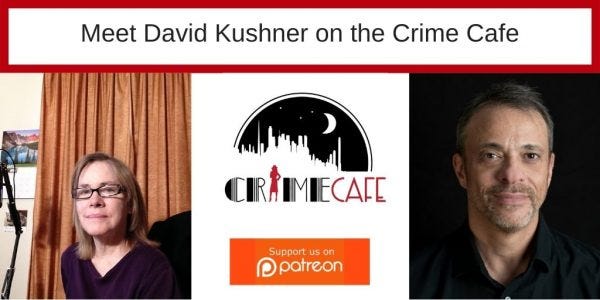


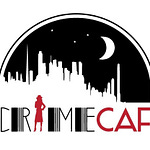
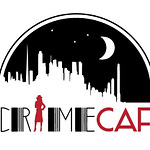
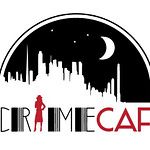
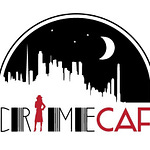

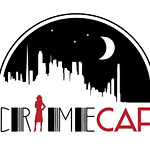


Share this post